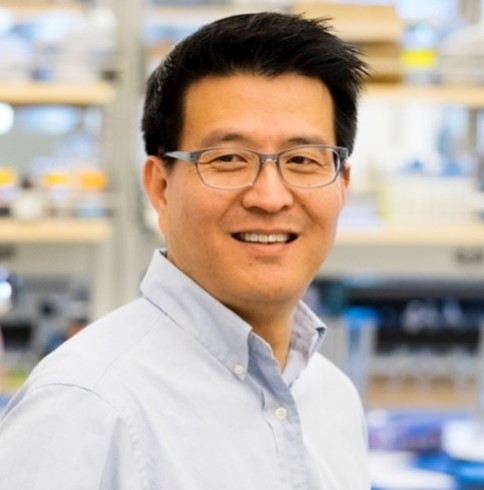Dr. Yu, Michael (Seungju)
Seminar Information

Collagen damage is associated with many pathologic conditions (e.g. tumor, fibrosis, arthritis) and musculoskeletal injuries (e.g. tendonitis). Therefore, the ability to specifically target damaged and denatured collagens (over intact collagen) could lead to new diagnostics and therapeutics, as well as applications in regenerative medicine. Our research group has developed collagen hybridizing peptide (CHP), a rationally designed synthetic peptide that has a strong propensity to fold into triple helical molecular structure of collagen and is able to bind to denatured and damaged collagen strands by strand hybridization which is similar to primers binding to melted DNAs during PCR. The collagen hybridization can take place both in vitro and in vivo. Here, I will present i) the unique hybridization mechanism of CHP which is made possible by super-secondary protein folding, ii) use of CHPs to detect/image damaged and remodeling collagens in pathologic conditions including mechanical damage in tendon and cartilage, and iii) collagen-mediated damage mechanism of overloaded tissues. I will also discuss prospects for using CHPs for diagnostic imaging and drug-delivery for musculoskeletal injuries.
Michael (Seungju) Yu is a Professor of Biomedical Engineering, and Molecular Pharmaceutics at the University of Utah. Previously, he was an Associate Professor of Materials Science & Engineering at Johns Hopkins University. Dr. Yu is the recipient of Presidential Early Career Award for Scientists and Engineers (PECASE) and NSF CAREER award, as well as Fulbright US Scholar award. Dr. Yu received undergraduate degree in chemistry from Korea University in South Korea, followed by doctoral degree in Polymer Science and Engineering from University of Massachusetts at Amherst. He was an NIH post-doctoral fellow at the Chemistry Department of University of Wisconsin-Madison before joining the Johns Hopkins University. By applying principles of protein folding and assembly to bio- and nano-technology, Dr. Yu is developing innovative diagnostic/therapeutic molecules, biomaterials, and piezoelectric materials. In particular, the collagen hybridizing peptide he developed and commercialized (3Helix, Inc) is considered a breakthrough technology in detecting and studying damaged collagens associated with disease and injury. As an active member of NIH, Dr. Yu serves as a standing member for Biomaterials Biointerface (BMBI) study section, onsite institution reviews, and interagency research consortium.
